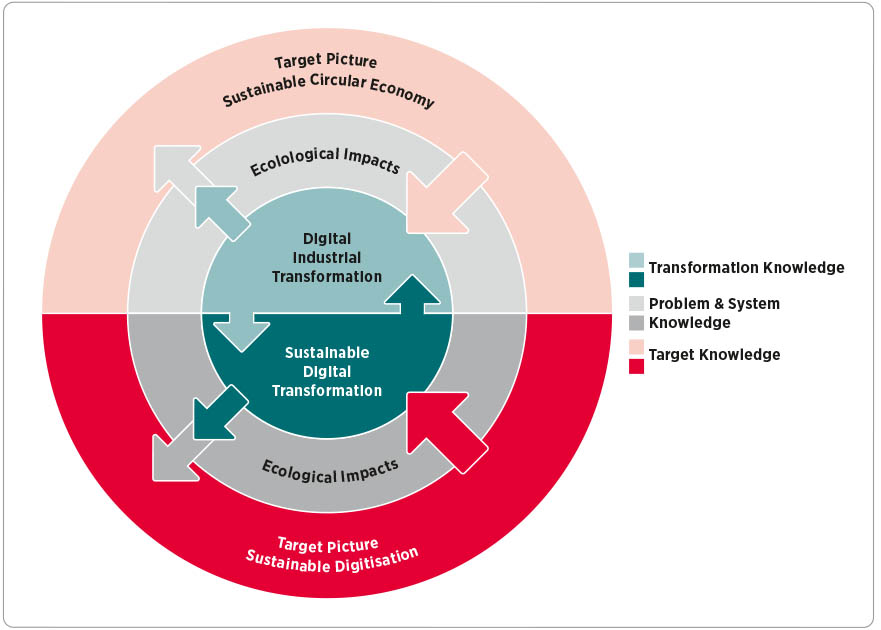DigitalTransformation
The Research Unit investigates the prospects of digitisation and how it might be leveraging for the sustainability transformation and shaped as a sustainable digital transformation.
Digitisation is the central change dynamic of the 21st century. Dealing with its impacts and at the same time shaping digitisation itself are therefore core tasks for achieving any globally sustainable development. The Digital Transformation Research Unit addresses both: the ambivalence of the impact of digitisation on sustainability and the still unclear and contradictory prospects of sustainable digitisation. Framed by the multi-dimensional key question, the research focuses on an ecological perspective: How can digitisation be leveraged to ensure societal and economic development within the planetary limits for greenhouse gas emissions and resource consumption, and how can the digital transformation itself be managed within the guardrails of these ecological limits?
Objectives
The complementary view on digitisation characterises the Unit’s research profile. The objective is
- to generate knowledge of the problem and system: analysing the current situation and development trends along with their driving forces and interdependencies
- to provide target knowledge: designing realistic and ambitious target pictures and strategic orientation for actors from society, economy and politics
- to nurture transformation knowledge: tackling concrete innovation tasks in cooperation with practice partners and identifying and testing implementation-orientated strategies and solutions

Thematic focus areas
The research is centred around the interactions between sustainable digitisation and industrial transformation towards a decarbonised and resource efficient circular economy.
As a foundation, the technological prospects and innovation dynamics of digital transformations are analysed. Digital technologies, infrastructures and solutions are investigated with regard to their functionalities, interactions and impact conditions. This understanding is the basis for the evaluation and strategic design of current and future development paths for digitisation as an enabling driver for sustainability.
With a focus on industrial applications, specific solutions and supporting policy instruments for the digital transformation of the Circular Economy are designed, tested in practical applications and translated into consistent trend-setting strategies for companies, industry sectors and institutions.
A further thematic focus is on the sustainable design of digitisation itself. The environmental impacts of digital technologies and infrastructures are analysed in terms of their current and future resource and energy consumption. Impact parameters, interdependencies, and driving forces are examined in order to derive guardrails and requirements for sustainable digitisation. This leads to forward-looking strategies, targeted solutions and related policy frameworks for managing digitisation within the ecological limits.
Publi-cations
You find all scientific publications on our publication server:
Projects
Here you can find projects of the Research Unit:
